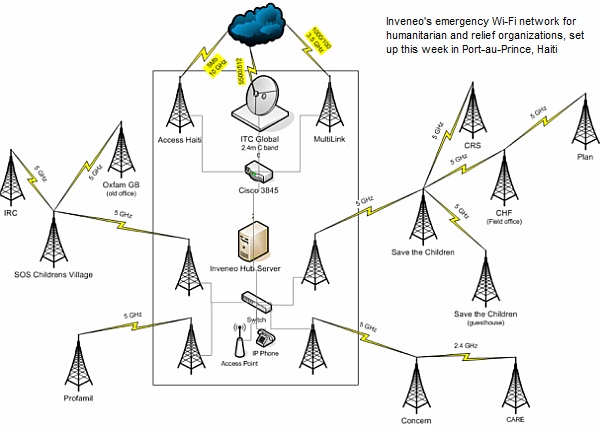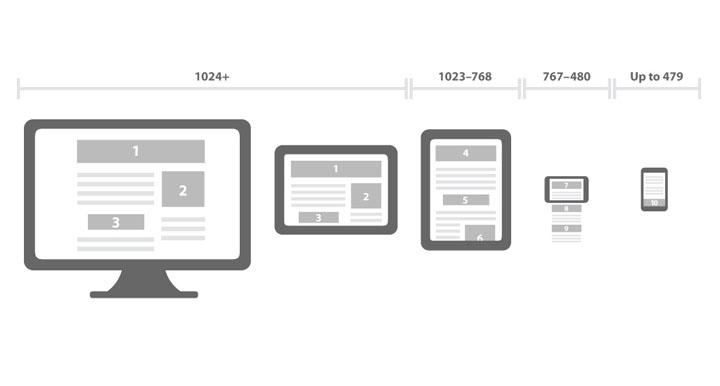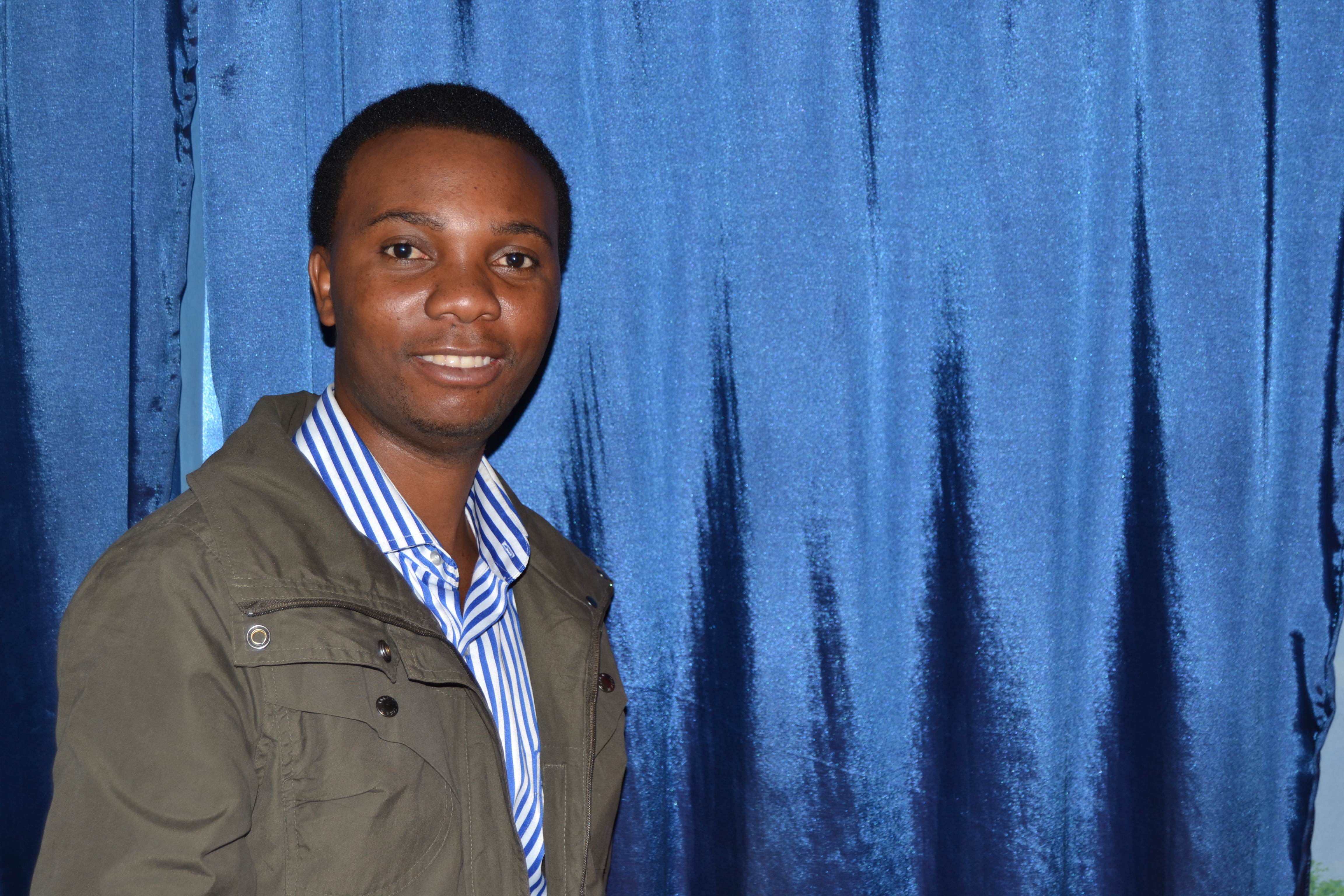The current picture of Haiti is complex: millions of people are still displaced, billions of dollars in promised aid have yet to arrive, and there is still an extreme lack of infrastructure. However, there are thousands of NGOs working around the country, and some of the most promising work is being done in communications and connectivity.
While in Haiti for the one-year anniversary of the earthquake, Keith Lane and I had a chance to meet up with Inveneo, one of the organizations working tirelessly to reestablish and support better connectivity Haiti. As Mark Summer, the Chief Innovation Officer and Co-Founder of Inveneo, says, “One of the biggest things, certainly, is that Haiti, pre-earthquake, had already so many challenges, that with anything you do, it seemed like, ‘Why aren’t you doing fifty-five other things?’ But you of course need to focus on the one thing you are good at, and see if it makes sense in the local context.”

We sat down with Inveneo to talk about the work that they are good at: information communications technology (ICT). Inveneo has been working around the world since 2006, primarily in sub-Saharan Africa. Cognizant of Haiti’s need for connectivity through contacts in Africa, they were set to fly out on January 13, 2010, and were delayed by a massive earthquake. Luckily, another partner, Net Hope, identified a need for improving the communications situation.
“Right after the earthquake Net Hope really wanted to get improved access to the internet to get logistical information in and out,” says Summer, “Get the message out as well, and be better in communication with their team. So we came about five days after the earthquake, here to Port-au-Prince, and helped reestablish communications for those NGOs responding directly in the aftermath of the earthquake.”
Summer explained the different levels of the work that Inveneo is doing in Haiti: “What we’re doing in Haiti is really the same thing we’re doing in other countries, which is partnering with other organizations to use low-power computing technologies in rural areas because typically you don’t have a stable power grid, or no power grid at all in some rural areas. Instead of using generators and relying on fuel, being able to reduce power consumption effectively and efficiently use solar power is one of the things that’s [powering] computer labs in schools, computers in medical facilities, small businesses, local government, the whole gamut.”
He explained that the other aspect was connectivity, something that varies widely across the country. In Port-au-Prince, there is a large selection of service providers and coverage, but as one gets farther out into rural areas, most people rely on satellite connectivity alone. Inveneo is trying to change that by employing long-distance wi-fi technologies and by training a core of IT entrepreneurs who would then serve to support those technologies and be equipped to help organizations use and maintain them effectively.
Rohan Mahy, the Program Director based in Haiti, points out that the technology services Inveneo is providing are critical to organizations like hospitals, governments, and schools. “There’s a lot of interest in decentralizing government in Haiti, and in order to do that you need to have access to the same records in all of your locations. That means you need to computerize, and in order to do that you need good connectivity in all of those locations. In hospitals, there’s a lot of interest in taking the hospitals which are at a higher level of skill and connecting them with hospitals in the United States to provide mentorship and training and consultation. And likewise, for the other hospitals in Haiti, we think it would be tremendously valuable to have to hospitals connect to the more technically-savvy hospitals and be able to share those kinds of skills. On the education front, we have specialized computer labs, and the goal of these labs is two-fold: it’s to teach, to familiarize and teach [students] how to use computers, but also how to do research on the internet and how to find out other questions. It’s good to see that there are specific uses for those tools which are imminent, that people are already doing or that people are already interested right now.”
 In addition to providing the appropriate technology, a key part of Inveneo’s mission in Haiti is to provide training for local staff to support those systems, and make them sustainable locally. This includes training for young IT professionals, complete with an internship program, and training in programming, online learning design, and desktop IT work. Mahy describes that while it’s easy to find qualified people who were affected by the earthquake interested in the training, it gets difficult to find people from more rural areas, and in particular to find young women and girls who can commit for the duration of the program. He notes that through working with partners, they are able to provide alternatives to encourage women to participate in technology sectors, like offering girls-only classes and matching girls with female leaders in their communities in a mentorship program. “Mentorship is probably the biggest way [girls are encouraged],” says Mahy, “There are several women businesswomen in the Port-au-Prince area, and they provide excellent role models, excellent proof that it’s possible.”
In addition to providing the appropriate technology, a key part of Inveneo’s mission in Haiti is to provide training for local staff to support those systems, and make them sustainable locally. This includes training for young IT professionals, complete with an internship program, and training in programming, online learning design, and desktop IT work. Mahy describes that while it’s easy to find qualified people who were affected by the earthquake interested in the training, it gets difficult to find people from more rural areas, and in particular to find young women and girls who can commit for the duration of the program. He notes that through working with partners, they are able to provide alternatives to encourage women to participate in technology sectors, like offering girls-only classes and matching girls with female leaders in their communities in a mentorship program. “Mentorship is probably the biggest way [girls are encouraged],” says Mahy, “There are several women businesswomen in the Port-au-Prince area, and they provide excellent role models, excellent proof that it’s possible.”
Inveneo has an ambitious plan to stay in Haiti for the next year, developing ITC systems and training the local communities to maintain them. “We’re really trying to hand over this network to Haitian entrepreneurs,” says Summer, “They can take over from us, and we can leave without everything that we’ve worked on just collapsing when we go.”
Jenna Crowder is a freelance graphic designer and the creative director at TechChange. She is currently researching post-conflict public art for peacebuilding with a particular focus on Haiti.
Photo credits: Portrait of Mark Summer and Rohan Mahy courtesy of Keith Lane; graphic at http://www.volny.cz/horvitz/os-info/haiti.html.



